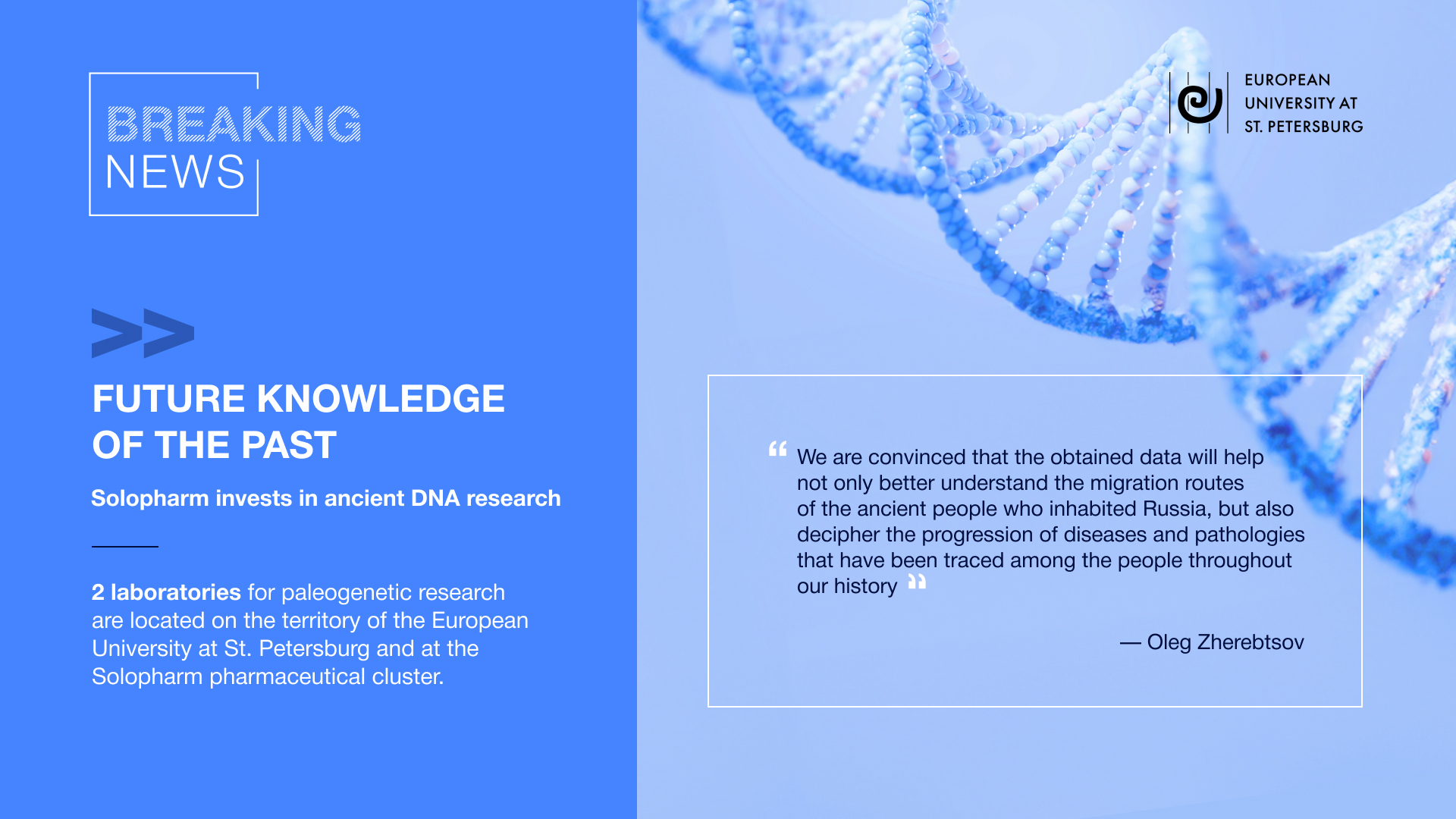Solopharm, a leading Russian pharmaceutical company, announces the completion of new laboratories to expand knowledge about the history of the ancient people of Russia.
The company's project investments that amount up to 24 mln rubles made it possible to build two laboratories for paleogenetic research. One of them is located on the territory of the European University in St. Petersburg, the second is at the Solopharm pharmaceutical cluster.
These laboratories will become a scientific platform for conducting a large number of genetic tests at the nexus of archeology and genomics. Paleogenomics allows scientists to look into the past, learn more about the people of ancient cultures, their genetic origins and contacts, diseases and lifestyles.
Oleg Zherebtsov, Founder of the company and Chairman of the board of directors emphasizes the importance of this project: «Paleogenetic research can reveal the amazing secrets of the history of our ancestors. We are convinced that the obtained data will help not only better understand the migration routes of the ancient people who inhabited Russia, but also decipher the progression of diseases and pathologies that have been traced among the people throughout our history».
Let us remember that on June 8, 2022 the State Hermitage Museum, the European University in St. Petersburg, Solopharm and Genotek, the medical genetic center signed a quadripartite cooperation agreement.
For reference:
Solopharm (Grotex LLC) is a leading pharmaceutical manufacturer of medicines, food supplements and medical devices, which has been awarded the status of a strategic enterprise of the pharmaceutical industry of Russia.
The company began operating in 2014 and already has 5 production sites with a total area of more than 36,000 m2. In-house R&D department, analytical and microbiological laboratories allow Solopharm to provide a full cycle of pharmaceutical development.
Today, Solopharm is a team of more than 1,800 employees and the company’s portfolio includes more than 220 market authorization certificates.
European University in St. Petersburg (EUSP) was established in 1994 after heavy lobbying from Anatoly Sobchak, the mayor of St. Petersburg and began its work in 1996. EUSP is a research university with a postgraduate education, including master's, postgraduate and additional professional education in social and human sciences.
The mission is to unite the best traditions of Russian and world science and prepare scientists and experts capable to cope with complex social processes and global challenges.
EUSP is actively developing and exploring various socially significant research areas: social research of the Arctic Region, the history of the Siege of Leningrad, the social consequences of climate change, and interdisciplinary medical research.
